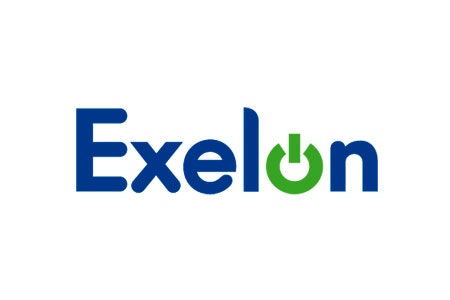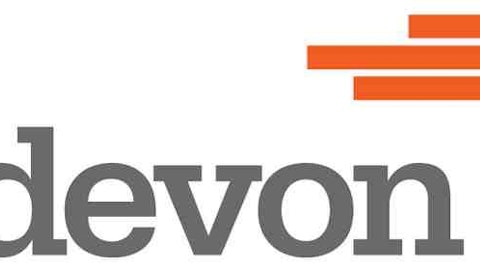It’s been a rough five years for Exelon Corporation (NYSE:EXC).

After a plunging share price was coupled with a dividend cut, is there any reason to buy into this beaten-down utility?
Export terminals, natural gas, and the fate of nuclear power…
Back in February, Exelon Corporation (NYSE:EXC)’s CEO Christopher Crane had the following to say:
“Right now at our nuclear sites, we’re continuing to see depressed prices at points of the day, and we’re actually seeing negative prices, which drives us to have to pay to generate power. That’s not a sustainable business model…”
Mr. Crane also explained that he expected natural gas prices to increase by 2015, which would help increase the profitability of his company tremendously as well:

While increasingly expanding into gas, Exelon Corporation (NYSE:EXC)‘s portfolio is still heavily concentrated in nuclear. This is part of the problem in today’s electricity market. Being the owner of the largest amount of nuclear power plants in the U.S. has stunted Exelon’s earnings, as gas prices dropped along with power prices, leaving the company operating its expensive plants in an environment where competitors utilizing gas and cheaper forms of power generation seem to be doing just fine.
The drop in power prices has erased over $31 billion from the company’s market value over the last five years according to Bloomberg.
Even worse, according to Bloomberg, analysts with Deutsche Bank Securities recently downgraded the company from a ‘Buy’ to a ‘Hold’ rating after announcing that they expect a significant haircut to Exelon Corporation (NYSE:EXC)‘s profits by 2016, citing:
“We are stepping to the sidelines as we cannot ignore the thesis-altering implications of Friday’s PJM capacity auction results…”
Cheaper power from neighboring markets was blamed for the PJM capacity price drop starting in June 2016.
So, is there any hope?
Natural gas prices being cheap and flat have been a devastating thorn — or better yet a dagger — in Exelon Corporation (NYSE:EXC)‘s side for the last five years, but this may soon change. While gas-fired plants are currently able to sell electricity cheaper as the prices of gas are incredibly cheap, this may change if more export terminals to ship gas overseas are approved.
Exporting will theoretically relieve the current glut in natural gas, as well as increase its price. Why is this good for Exelon? Because increasing gas prices will lead to increasing electricity costs. This will not, however, lead to any increased operating costs for Exelon’s nuclear plants. Therefore, all the natural gas-induced price increases will fall directly to Exelon’s bottom line.
Are export terminals coming?
Export terminals in the United States are a rarity, and for a while, Cheniere Energy, Inc. (NYSEMKT:LNG), had a monopoly on them with its Sabine Pass export terminal in Louisiana. Cheniere’s export terminal was conditionally approved in May of 2011, for a rate of about 2.2 billion cubic feet a day. Cheniere has also recently received the “thumbs up” to expand and build its third and fourth gas liquefaction plants adjacent to its export terminal.
Cheniere plans to make its first LNG deliveries as soon as late 2015, exporting primarily to customers in Asia and Europe. As of now, construction of the company’s first two plants, or “trains” are at about 30% of completion. And it now has competition coming into play as well.
Earlier last month, the Energy Department approved a second LNG export terminal — this time in Texas. The Freeport LNG terminal is 50% owned by ConocoPhillips (NYSE:COP), and will be able to export up to 1.4 billion cubic feet of LNG per day. Other owners of the terminal include The Dow Chemical Company (NYSE:DOW) and Osaka Gas.
Department of Natural Resources Commissioner Dan Sullivan also recommended that Alaska export terminals should be considered. He stated that, “You have essentially zero resource risk — that is huge,” referring to the State’s plentiful supply of natural gas and the fact that it is already being produced, as well as the fact that unlike the lower 48 states, Alaska can export directly to customers such as those in East Asia without the “choke points” that are a result of having to go through riskier places such as the Panama Canal.
This would benefit Conoco even more, because it is part of a group effort with other oil majors dedicated to invest over $1 billion over the next five years in Alaska’s North Slope. Alaskan tax reform relating to oil was a big incentive for the decision. Conoco owns 36% of the Prudhoe Bay field.
Conoco also has plans with BP plc (ADR) (NYSE:BP) and Exxon Mobil Corporation (NYSE:XOM) to bring gas from the North slope to the southern Alaskan coast, in order to hopefully one day be able to export it in the form of liquefied natural gas.
And now back to Exelon…
So, how will the exporting of natural gas affect Exelon? This is yet to be known, and exporting may take a long time to get started — and that’s assuming more terminals get approved. One report commissioned by the Department of Energy done by the Energy Information Administration on prices expects natural gas prices to increase between 3% and 9% if exports pick up, with a 1% to 3% rise in utility bills for residential consumers.
It doesn’t look like increasing natural gas prices are going to be Exelon’s savior any time soon, so looking at the company currently, things look like they may continue to be a little rough.

Exelon’s financial condition isn’t ideal, but despite the increasing long-term debt, the company has managed to drop its debt/equity ratio over the years. While nobody likes to see a dividend cut, in Exelon’s case, it will give the beaten-down utility more financial flexibility to hopefully clean up its balance sheet and find a way to increase profitability — as well as avoid a credit downgrade.

Increased revenue is matched with a huge drop in earnings. The good news, however, is that earnings are supposed to pick up going forward, and with annual EPS estimates of $2.49, the company is trading at around 13.5 times forward earnings.
The bottom line
Purchasing shares of Exelon today carries more risk than a traditional utility stock. The safety and high-yield usually associated with utilities simply isn’t there. Buy Exelon if you believe in the company’s turnaround story.
If the company finds a way to diversify its portfolio, or more realistically, sees natural gas prices eventually pick-up, then the turnaround may have some merit, otherwise, exercise caution. Exelon is a value play at this point, and a longer timeline may be needed to see results, so impatient investors beware.
Joseph Harry owns shares of ConocoPhillips. The Motley Fool recommends Exelon
The article Is This Stock a Good Buy at Current Levels? originally appeared on Fool.com and is written by Joseph Harry.
Joseph is a member of The Motley Fool Blog Network — entries represent the personal opinion of the blogger and are not formally edited.
Copyright © 1995 – 2013 The Motley Fool, LLC. All rights reserved. The Motley Fool has a disclosure policy.





